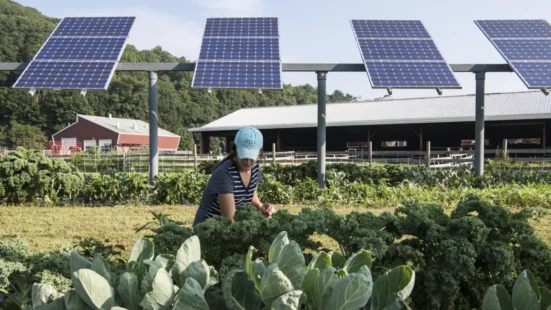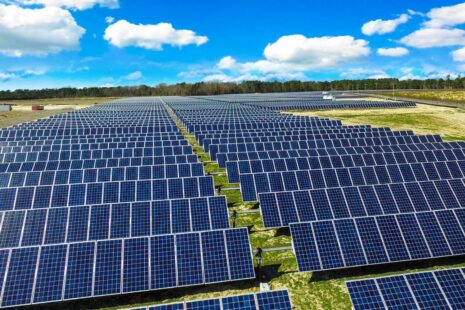
The first commercial-scale solar-powered and carbon-neutral farm in Australia could be on the horizon. However, instead of large farm fields, it’ll be placed within city buildings. Eden Towers, based in Western Australia, has announced intentions to build four 12-meter-high growth tower platforms for a precision-controlled indoor habitat where plants can thrive without soil all year. The towers will be built in Perth, WA, in collaboration with Intelligent Growth Solutions (IGS), a Scottish-based indoor agritech firm.
When fully operational in the second part of 2022, Eden Towers plans to produce 120 tonnes of lettuce, spinach, kale, and basil every year. The farm will use 98 percent less water and produce up to 15 times the yield of a greenhouse or open field, according to the business. In order to produce the equal output in a typical field, 6000m2 of space would be required. Moreover, by 2024, the project expects to be completely carbon neutral. Eden Towers intends to expand its business to include Adelaide, Sydney, and Melbourne, as well as Singapore and Jakarta. The sustainable farming company has reinforced its war chest by getting a financing facility as it moves forward with discussions for a Series-A round, following a successful seed capital raise in 2021.
The Perth farm, according to Eden Towers co-founder Christian Prokscha, is being funded with a mix of debt and equity, including a $650,000 seed round through the Birchal platform in June. Mr Prokscha added, “We are currently finalising the design of a four-tower industrial scale farm in Perth that will be placed at the Western Australian Food Innovation Precinct at Peel.” “We are now in talks with a number of different partners with the goal of getting up to $10 million in Series-A funding to fuel our ongoing expansion,” says the company.
The method of growing food on vertically inclined surfaces is known as vertical farming. Instead of planting crops and other things on a single level, such as in a field or a greenhouse, this approach grows them in vertically stacked layers, which are typically integrated into other structures like as skyscrapers, shipping containers, or converted warehouses. This current concept incorporates indoor farming techniques and Controlled Environment Agriculture (CEA) technology. Indoor food and pharmaceutical production is possible thanks to artificial temperature, light, humidity, and gas management. Vertical farming resembles greenhouses in many respects, where metal reflectors and artificial lighting supplement natural sunlight. Vertical farming’s main purpose is to maximise crop output in a small space.

Chris Brayley began his career as an electrician, repairing air conditioning and refrigeration. His company, Brayley Electrical, has adjusted its focus in recent years to become more focused on solar power, especially as even more consumers on farms and ranches turn away from generators as diesel prices continue to increase. Mr. Brayley claims that his […]
Read More →
As the number of solar farms in Australia grows, so does the controversy over heavy metals in solar panels and the difficulty of recycling them. Lynette LaBlack, a farmer in the Riverina region of southern New South Wales, has been questioning everyone who will listen with uncomfortable questions. She questioned Metka EGN regarding its solar […]
Read More →
As the number of solar farms in Australia grows, so does the controversy over heavy metals in solar panels and the difficulty of recycling them. Lynette LaBlack, a farmer in the Riverina region of southern New South Wales, has been questioning everyone who will listen with uncomfortable questions. She questioned Metka EGN regarding its solar […]
Read More →